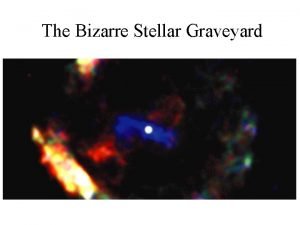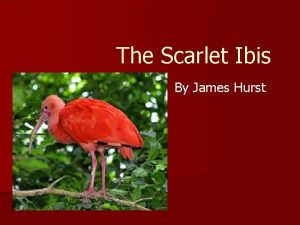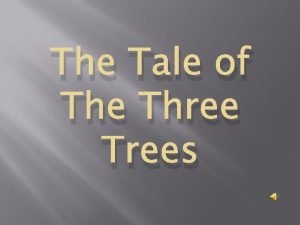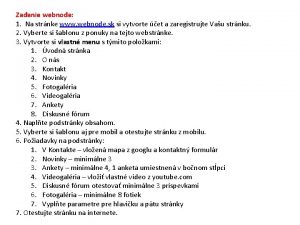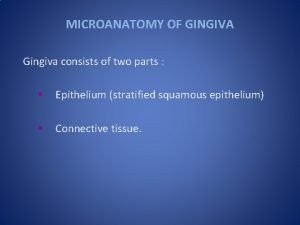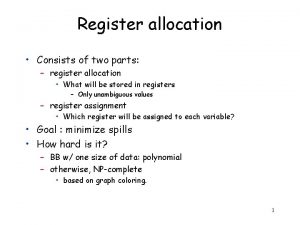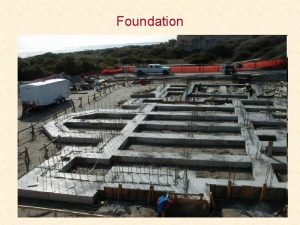This slideshow consists of two parts A graveyard


















- Slides: 18

This slideshow consists of two parts: § A graveyard of Incas believed to be more than 500 y. o. In the grave 3 skulls show signs of fire gun shots and that leads archaeologists to believe that these might be the first victims of European conquerors. (First six photos) § Ancient Inca’s ruins and other Peru sites. (Last seven photos)

June 19, 2007—A nearly 500 -year-old skull sports the telltale signs of a gunshot wound from an antique firearm. The find, discovered recently in an Inca cemetery near Lima, Peru, was the victim of a Spanish musket, according to a detailed analysis. That makes the skeleton the oldest documented gunshot victim in the New World and possibly the first person in the Americas ever to have been killed with a firearm, experts say. National Geographic grantee Guillermo Cock led the team that uncovered the remains. It is one of 72 skeletons hastily buried at the site without the usual Inca reverence for death. (National Geographic News is part of the National Geographic Society. ) "We thought it was a person killed recently — 5, 10, or 20 years ago, " Cock told National Geographic News. "We didn't expect the individual would have been killed by a bullet 500 years ago. "

A piece of bone recovered intact near a skull in an Inca cemetery revealed that the man to whom it belongs—slain almost 500 years ago—might have been the New World's first gunshot victim. Analysis of the plug showed he was killed with a firearm much less forceful than modern weaponry, and the projectile's concave imprint is highly suggestive of a musket ball. In addition, detailed microscope examination of the skull and plug showed fragments of iron, a metal commonly used in Spanish ammunition. "This gave us positive evidence that this individual died during conquest and was killed by gunfire, " said Guillermo Cock, leader of the expedition that uncovered the mass Inca grave where the gunshot victim was found. "We have traces of iron on the edges of the bullet entrance and we have exit damage in the face caused by the bullet leaving the head. "

Archaeologists working in the Lima, Peru, suburb of Puruchuco recently uncovered a mass Inca burial site containing both traditionally prepared mummies and 72 skeletons buried hastily without the usual elaborate Inca customs—including at least three apparent gunshot victims. The scientists were there at the request of the Lima government, which had planned a road through the area. But the 500 -year-old Inca cemetery contains the first documented gunshot victim of the New World, archaeologists say. The man, believed to be a casualty of the Spanish conquest, may be the oldest person in the Americas to be killed by a firearm, the experts add. "We do not have evidence of individuals murdered by firearms and linked to the epoch of [Spanish-New World] contact except for these findings in Puruchuco, " said Carlos G. Elera, director of the Sicán National Museum of Peru.

Archaeologist Guillermo Cock examines a skeleton in a newly found Inca cemetery just outside Lima, Peru. The skeleton is one of 72 buried at the site under what must have been chaotic conditions, experts say. The bodies were not facing the right direction, and they had been tied up or hastily wrapped in a simple cloth and buried at shallow depth, without the usual Inca adornment. Many of the skeletons were also victims of terrible violence, showing signs of being hacked, torn, or impaled. "We were not expecting to find as many traumatic injuries as we have so far, " said bio-archaeologist Melissa Murphy of Bryn Mawr College

Archaeologists work carefully to excavate a newly discovered Inca burial site in the Lima, Peru, suburb of Puruchuco. The graveyard contained well -preserved mummies as well as the remains of 72 people who were hastily buried with the usual elaborate Inca customs. The speed and chaos of the burials— along with three apparent gunshot wounds—suggests that the victims fell prey to Spanish conquistadors nearly 500 years ago. Because the remains of women and children were found at the site, experts say, the skeletons were likely support staff for warriors engaging the European invaders. "It is the first tangible evidence of Spanish violence towards indigenous peoples that we have from South America, " said Karen Olsen Bruhns, a San Francisco State University archaeologist specializing in Central and South America.

Along with hastily buried skeletons apparently killed by Spanish invaders, archaeologists uncovered a number of Inca mummy bundles at a newly discovered historic cemetery near Lima, Peru. According to Guillermo Cock, leader of the archaeological expedition, the contrast between the carefully preserved mummies and the haphazard arrangement of the other skeletons highlights the chaos that ensued during the Spanish invasion of the Inca Empire. The graveyard includes three bodies showing signs of gunshot wounds, including a skull that likely belongs to the first person from the New World to be killed with a firearm. The new discovery will be detailed in The Great Inca Rebellion, a NOVA/National Geographic TV special premiering Tuesday, June 26, 2007, at 8 p. m. ET/PT on PBS.

The following photos Photo Gallery: Peru Journey to Peru’s ancient Inca ruins and see the influence of the past on the people who live there.

Machu Picchu's impressive ruins are Peru's foremost tourist attraction. During its 15 th and 16 th century prime the fortified site was an important stop on the Inca highway. Photograph by Frans Lanting

Reconstructed Incan terraces and buildings show the skilled stonework for which the ancient people are celebrated. Photograph by David Evans

The Plaza de Arma lies at the heart of Arequipa. The Andean city's historical center, replete with historic architecture, has been designated a UNESCO World Heritage Site. Photograph by Stephen Alvarez

History lives in Peru, where four-footed transportation and traditional clothing make three modern women appear part of past. Photograph by Pablo Corral Vega

Towering peaks greet an expedition on the mountainous paths of Peru's beautiful Vilcabamba Range. Photograph by Gordon Wiltsie

The remarkable ruins of Choquequirau bear witness to what might have been one of the Inca's last stands. The settlement lies deep in the remote reaches of the Vilcabamba Range. Photograph by Gordon Wiltsie

The plaza at the heart of Huancacalle, Peru, unfolds before the lens in a bird's -eye view. The pleasant town is a popular stop for visitors to the Andes. Photograph by Gordon Wiltsie

At 12, 500 feet (3, 810 meters), Lake Titicaca is the world's highest lake that's navigable by large commercial vessels. Traditional reed boats still ply its waters as well. Photograph by Trevor Smithers ARPS/Alamy

Vendors set up shop in Lima's Plaza Bolognesi, awaiting large crowds for the procession of Our Lord of Miracles. Each October an image of Christ, which survived the deadly 1650 earthquake, is paraded through the city's streets to great fanfare. Photograph by William Albert Allard

The End Photos and Captions: National Geographic Slideshow: Chambis Kiatipis
 Morphology of hair
Morphology of hair Human vs animal hair
Human vs animal hair Critical thinking questions about fossils
Critical thinking questions about fossils Masses in the stellar graveyard
Masses in the stellar graveyard The scarlet ibis birds death/dying anything red/reddish
The scarlet ibis birds death/dying anything red/reddish Nh old graveyard association
Nh old graveyard association Accessify salford
Accessify salford What is a bleeding tree in the scarlet ibis
What is a bleeding tree in the scarlet ibis Tommy's window slideshow prayer
Tommy's window slideshow prayer The tale of three trees slideshow
The tale of three trees slideshow Power point sekolah sabat
Power point sekolah sabat Naruto slideshow
Naruto slideshow Dust bowl slideshow
Dust bowl slideshow Multiplying negative and positive numbers
Multiplying negative and positive numbers Lotf chapter 8 summary
Lotf chapter 8 summary Fahrenheit 451 newspaper project
Fahrenheit 451 newspaper project Franck-condon principle lecture notes
Franck-condon principle lecture notes Slideshow
Slideshow Www webnode
Www webnode



